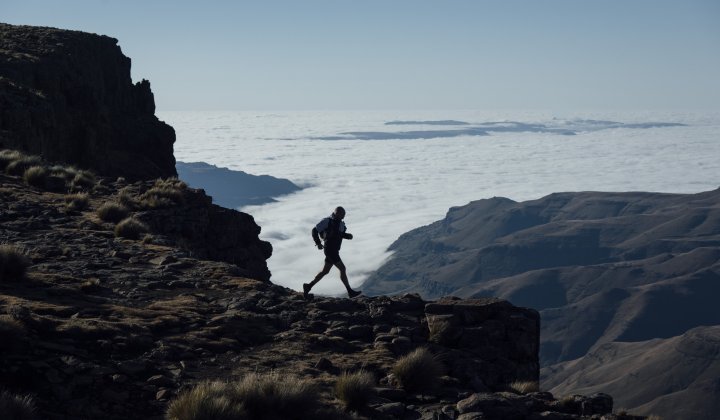If 2020 went down in history of the year of the Covid pandemic, then 2021 should be credited as the wake-up call year for climate change. Extreme weather conditions – cold and hot – were felt across the world. As if to reinforce the message, Mother Nature brought the message home to South Africa in 2022 with two months of back-to-back floods in KwaZulu-Natal killing 448 people, destroying 12 000 homes and displacing 40 000 people. Two years later, we’re still feeling the devastating effect of climate change and the unexpected consequences emerging in different industries.
Heat-resistant cows and climate-tolerant apples
Last year at Fruit Logistica in Berlin – one of the largest trade fairs for the global fresh produce industry – the world’s first hot climate-tolerant apple variety called Tutti was launched by VentureFruit, a T&G Global company. This unique apple has been in development for the past five years and is the first fruit that has been engineered for global warming. The viability of growing Tutti has already been tested throughout Europe, including Italy, France, Germany, Switzerland and the UK.
After Tutti’s debut, VentureFruit announced that it is already working on an additional five new apple and pear varieties over the next seven years, all specifically bred to be tolerant of hot climates. In other parts of Europe, such as Spain, extreme daytime temperatures of more than 40°C, combined with warmer nights, is making growing fruit very challenging. Last year depleted reservoirs and rising temperatures forced farmers to rip up their avocado trees after four consecutive years of drought.
As an ominous bellwether, there was no avocado harvest 2023 from Spain, a country that is one of the world’s top exporters.
But it’s not just apples. Dairy farmers have also been battling to keep their cows cool.
Cows thrive in temperatures between 5°C and 25°C. If temperatures get hotter, cows succumb to heat stress, which results in them not only producing less milk, but also becoming more susceptible to disease and having higher calf death rates. In America, heat stress costs the US dairy industry $670 million annually, and scientists are predicting a 6.3% drop in milk production by end of the century if temperatures continue to rise as they have been.
Globally, dairy farmers are investing in systems such as massive fans, sprinkler systems, and fog machines just to keep their cows cool. Pig farmers are also facing the same challenges. But now, like the fruit farmers, dairy farmers are turning to science for a solution and have started breeding cows with a mutation called the “slick gene”. This results in cows with shorter coats and more active sweat glands, which is hoped will assist with the inevitability of rising temperatures each year.
Sacre bleu! Bending the cheese rules
The French take cheese, and cheesemaking, very seriously, so much so that Charles de Gaulle once lamented, “How can anyone govern a nation that has two hundred and forty-six different kinds of cheese?”
This almost religious approach to all things fromage has resulted in some very rigid cheesemaking rules. Some cheeses have up to 20 criteria of taste before that cheese variety is allowed to fall within the official appellation.
These rules, developed over centuries of cheesemaking, include anything from the breeds and feed of milking animals to stipulating that cows eat only from certain mountain pastures for seven months.
These rules never considered climate change.
The makers of one traditional cheese were not able to produce anything last year because the cows no longer had enough of a particular grass to eat, due to drought and extreme heat.
The new lexicon of climate change
Climate litigation: (See case study in “key takeaway” section) This type of litigation has now become more commonplace than that trailblazing case in 2020. Last year, a judge ruled in favour of a group of young people in Montana who sued the state for failure to consider climate change when approving fossil fuel projects.
Climate change visas: In 2022 the Pacific island nation of Tuvalu built a digital copy of itself in the metaverse as a way to preserve its history and culture amid the threats of rising sea levels and climate change. A year later Australia issued the world’s first “climate change visas” to residents of Tuvalu to escape the rising sea levels and devastation from extreme weather.
Climate refugees: The displaced Tuvaluans join the growing number of people who are either forced to move, or willingly move, from their towns or regions that have simply become unbearable to live in, whether it is due to record-breaking hot or freezing temperatures.
Wildfire season: When residents in California or the Northern Territory in Australia nonchalantly mention that wildfire (or bushfire) season has “started early this year” it’s an indication that extreme weather, which used to be an anomaly, has now become a seasonal norm.
Eco anxiety: A growing, mental health issue, which mental health practitioners are seeing more of. It is an extreme state of concern about the current and future harm to the environment caused by human activity and climate change. This mental health issue is becoming so widespread that the “category” has its own new lexicon, which includes the terms climate change anxiety, eco-grief, and climate doom. People with eco-anxiety are stressed about saving their future environment, their children’s future or climate refugees who have been displaced by extreme weather.
Supply chain disruption from drought
Geopolitically the world has been focused on the attacks on cargo ships in the Suez Canal, but there is another climate-related supply chain disruption developing in the Panama Canal – an equally important global trade route connecting the Atlantic Ocean to the Pacific through a system of three locks.
These locks require fresh water to increase and decrease their level, but Central America was plagued by El Niño drought in 2023, which has dropped the water level in the Panama Canal to such an extent that steering a huge container ship through the canal has become challenging.
In 2022, more than 14 200 vessels used the Canal (approximately 36 to 38 daily crossings). In November 2023 only 31 ships per day were allowed, which was further reduced to 24 ships per day in December 2023. This may not sound like a drastic drop in numbers but considering the vast amount of cargo each ship carries, any drop in numbers has a devastating impact on trade and commerce.
KEY TAKEAWAY
A noticeable pattern when consulting with corporate companies in South Africa is their disturbing indifference about climate change. This is not about dodging a “greenwashing” accusation or discomfort about ESG policy; it’s just a noticeable lack of engagement and sense of urgency despite the evidence, which grows with each passing year.
When I challenged one financial services company on their apathy, the answers from their investment advisers was that it was either “too big a problem” to try to engage with, or “a problem for someone else to deal with”.
The fact that businesses globally are flagging green swans (in addition to black swans) as a risk matters not. I would think that having to genetically modify livestock and fresh produce to be heat-tolerant would be a clanger of a bellwether.
Perhaps being dragged into climate litigation would provide the urgency. This is what happened to Rest (for Retail Employees Superannuation Trust, one of Australia's largest pension funds) which was sued by a 25-year-old for failing to protect his retirement savings against climate change. He won the case.
Rest acknowledged in a statement that “climate change would lead to catastrophic economic and social consequences” and that the phenomenon was “a material, direct and current financial risk” to the superannuation fund.
Dion Chang is the founder of Flux Trends. For more trends as business strategy, visit: www.fluxtrends.com.




